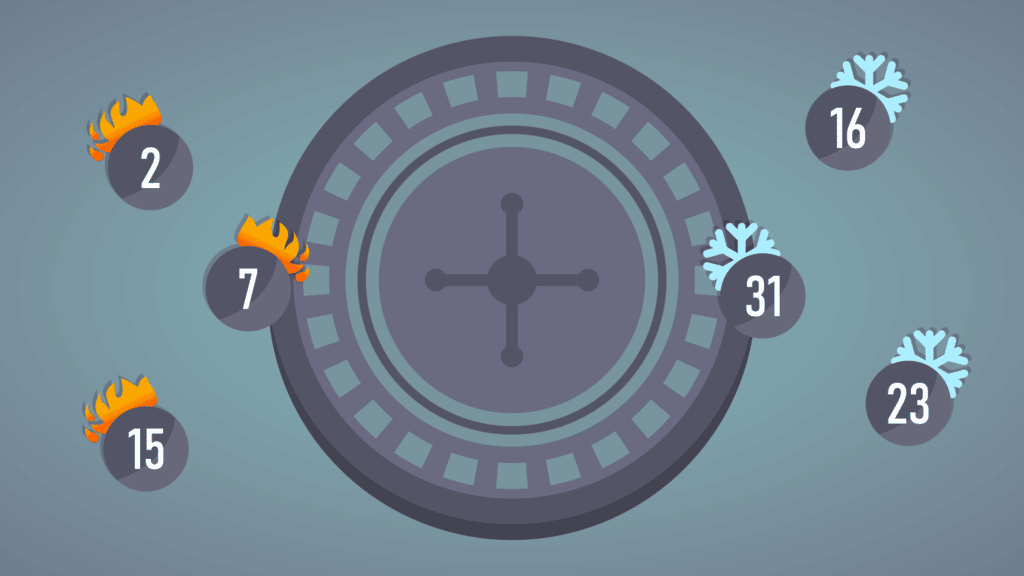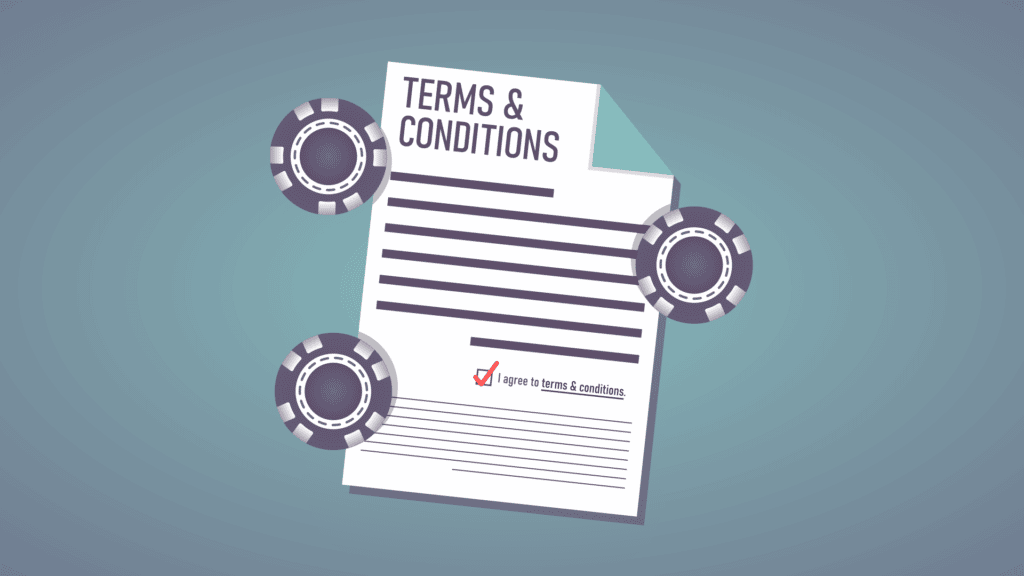Let’s not kid ourselves – going to a land-based casino can be a hassle. But amid all the downsides, there is a silver lining. It’s much easier to spot shady activities than online. Nowadays, anyone can buy a domain and a white-label website skeleton and go around scamming people. Since it’s been done and is definitely possible, this begs the question – are online casinos rigged?
That’s what our team wanted to know, so we embarked on a journey to do all kinds of research about the fairness of online casinos. We asked players, journalists, and industry experts, in addition to consulting publicly available information provided by regulators. So, with all that in mind, let’s discuss whether online casinos are rigged or if it’s just a scare.
Is Online Gambling as a Whole Rigged?
At its core, beyond all the bright lights and seemingly lucrative bonuses given out to players, online casinos are businesses. Their goal, in a free market, is to generate money for their owners or shareholders.
Ideally, this would mean that it’s in the best interest of sites to remain fair and legitimate. More players mean more wagers placed, which equals more profits. And in turn, if the person had a good time, they’ll recommend the site to those around them. It’s a classic example of the snowball effect.
Unfortunately, we don’t live in an ideal world. And there are instances where an operator thinks, “Hmmm if I can rig the game just a bit and gain 2% more revenue, why not?” It’s no secret; even regulators admit this is a common occurrence.
To combat this, governments have proposed rules on fairness in online gambling. Again, this sounds excellent in theory. In reality, half of the regulators don’t enforce these laws, while the other half only have basic fraud laws to work with. Legislation famously lags behind the situation in the real world, so the legal scope is too broad to result in successful enforcement.
Okay, so the situation is clear. Some sites use dubious jurisdictions to facilitate the use of rigged games, even though it’s illegal in theory. But let’s take one more step back. Is the concept of online gambling as a whole rigged?

The Truth: How Online Casinos Operate
In a certain way, online casino games are rigged. You can determine this by looking at the Return to Player (RTP) percentages for many popular games. For instance, classic blackjack has an RTP of ~99.2%. What does this even mean?
Basically, when a simulation of the game is run enough times (1 million+), the players win 99.2% of the time. The 0.8% is the cut the house takes. At first glance, this seems like a small percentage. But when you consider that a game has, let’s say, $10 million worth of traffic a week, that’s free money for the operator.
And as bad as it sounds, this is how it has to be. It’s the only way for casinos to survive. Theoretically, the game is deemed fair by regulators and third-party auditors, so as long as the number remains the same, there’s nothing anyone can do about it. Simply put, players accept these conditions upon creating an account.
What Are the Easiest Games to Rig?
Now that we’re aware rigging is most definitely possible, especially with the naturally skewed odds, it begs the question – what games get rigged more than others? We asked long-time players and community moderators, and the answers were a bit surprising:
Poker
Most of the rigging in online poker doesn’t come from the poker rooms or casinos per se, but it does happen, especially at lower and amateur levels. How this usually goes is that you have a group of people who decide to join a poker room or tournament together. It’s called off-table collusion.
If you think this is some kind of wizardry, try opening the same live casino as your friend. Try sitting at the same table. See how easy it is? Of course, this is strictly forbidden and can even result in a lawsuit from the operator.
Despite this, the players communicate their hands to one another on a different platform. Thus, they can adjust their bets and ‘funnel’ the funds from other people at the table.
Roulette
Unlike poker tournaments, which get rigged by competitors, rigged online roulette is solely due to faulty software. Although off-table collusion has been documented, roulette scams are still just a theory. Some of the iGaming developers we’ve tackled mentioned something that’s called the Hot-Cold reactive hypothesis.
It’s the notion of injecting the game with code that can react to Hot and Cold numbers and fraudulently maintain consistency. If you’ve ever played roulette, you’re aware that things such as 5+ rounds in the Small Series happen quite often. Too much volatility is bad, but too much consistency is also a red flag.

Arguments for Why Online Casinos Aren’t Rigged
Now that we’ve established the motives for rigging online casino games, you’re probably wondering – why should operators relinquish those illegal profits and stay on the good side of regulators? It might be down to the following reasons:
- Word of mouth. When someone recommends a casino, it’s probably because they’ve won something. Of course, never expect anything, but it’s reassuring to hear that winning is theoretically possible. That’s a micro-sized form of PR, but word of mouth is and will most likely stay the best form of marketing.
- Third-party audits. Having a stamp of approval from a famous auditor, such as eCOGRA is a big deal and sends a positive message to players. In some ways, operators find it more feasible to operate in a non-rigged manner. In terms of player attraction, the worth of a prestigious certificate is much more valuable than an amount stolen in the short term.
- Compliance. While third-party auditors are not legally required to test games nor even be stringent, government regulators are. Just like with iGaming testing labs, an official government license is one of the foremost seals of approval an online casino would have. It’s just not worth the risk of getting caught or alienating potential players.
- PR in a wider sense. Have you ever wondered why casinos post screenshots of big wins or why bookies share massive winning slips on their Instagram pages? It’s all to ensure the wider public that they are a legitimate iGaming operation and that it is possible to win. If no one wins, the player base will dry up, and there will be no more funds for the owners to steal.
However, all of this doesn’t absolve online casinos from being irresponsible. They have a duty to invest in security so as to prevent cheating, botting, or noticeable collusion. Looking through the site’s track record is a great way of seeing if they also walk the walk.
Deceptive Marketing and Coercive Tactics – Rigging or Not?
Upon the mention of rigged online casinos, most of us think of hacking, manipulated software, and tech-caused shenanigans. Not much thought or effort is put into resolving the issue of deceptive marketing and using celebrities’ wins as a form of ad.
This has been a trend in the last five or so years, where gamers who stream on the Twitch platform are offered copious amounts of money for casinos. One streamer reported that a site offered him $30,000 per hour. In exchange, he was to play a rigged live casino game where he would get big bonuses and consistently high wins.
However, this isn’t the reality for regular players. They will be faced with the same skewed odds, which is a classic case of fraudulent marketing. The logic is to use the psychological impact of wins + personalized bonus codes to get more people to sign up. Don’t fall for videos of several wins in a row or people being too lucky to seem real. It’s definitely a form of implicit rigging.
How Casino Fraud Happens & Famous Examples
Nowadays, it’s believed that online casino fraud rarely occurs in terms of rigged software. Everyone uses the games from the same trusted providers, so it’s difficult to tweak the code too much. Insider information and affiliate sheets provide this. However, individual casinos still control everything else on their site.
This leaves a lot of opportunities to manipulate the financial side of things. One of the most common forms of this fraud is actually legal. Since operators know no one reads the Terms and Conditions, they often put outrageous clauses or explain the negative parts in convoluted details. And because you, the player, accepted the T&C, there’s nothing you can do when your money is withheld.
‘Delayed’ payments and false security risks are also common examples of online casinos being rigged in favor of the house. Customer support claims the player’s transaction is ‘due to be processed soon’ or something like that, or they just stop responding altogether. Or they can say they’ve noticed suspicious activity without specifying what.

The Absolute Poker Scandal of 2007
The most high-profile incident of all time, at least in terms of rigged casino games, was the one involving Absolutepoker.com. In the mid-2000s, this website was amongst the most popular in the US and regularly hosted tournaments. They were based in Canada and licensed by the Kahnawake Gaming Commission. This regulator is based in the Mohawk Territory in Quebec and is known as being one of the first to offer online gambling licenses. So, at first glance, everything seemed normal.
That was also the impression of Marco Johnson, a 21-year-old poker player. He signed up for a Hold’em tournament, with first place getting a guaranteed $30,000. The buy-in was cheap, so he wanted to see how he stacked up against the competition.
After a series of good moves and strokes of luck, he found himself at the final tables. This was more than he expected, and he even ended up in 2nd place. However, there was something peculiar about the amount of bad luck and strange hands occurring at that table.
To get to the bottom of things, Johnson sent an email to AbsolutePoker, asking for his hand history throughout the whole tournament. He felt like he had a good point but didn’t expect a response. AbsolutePoker responded, but not with his hand history. Instead, someone sent an Excel file containing every hand played by all the competitors, player logs, and even IP addresses. This was either a purposeful leak, or the staff made a mistake.
Puzzled by this, Marco started analyzing the data. Soon afterward, he noticed that the winner, a player with the nickname Potripper, made moves that defied logic and still won. What’s even more alarming, the visitor logs showed an invisible player with ID #363 was always present when Potripper was winning.
Eventually, it came out that this mystery player was an AbsolutePoker co-owner Scott Tom, while Potripper was an employee of the site. Through further investigations, it was determined that AbsolutePoker defrauded its players by just under $1,000,000.
The Mathematics of Randomness in Casino Games
Online casino games work on the principle of randomness. A computer program is written to always pick a random thing from a wider selection. It has no active input on what’s chosen and who ends up winning. This is called a Random Number Generator (RNG), and it’s at the core of blackjack, poker, slots, and everything else.
A game’s RNG is tested by artificially simulating the gameplay millions of times. It has to be an unfathomably high amount of hands/rounds/spins for the exact RTP to be determined. Hackers usually try to go straight for the RNG section of the game’s code, usually infiltrating the supplier’s headquarters.
This is why it’s important to play at licensed and secured sites. Through legal and reputational means, they are forced to abide by the highest security standards. It’s a win-win situation. The casino can grow, while players can rest assured that they have a chance of winning.
